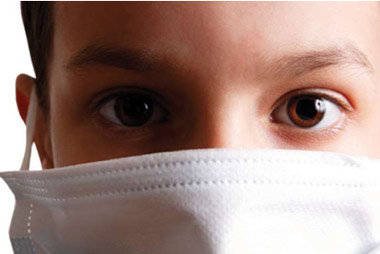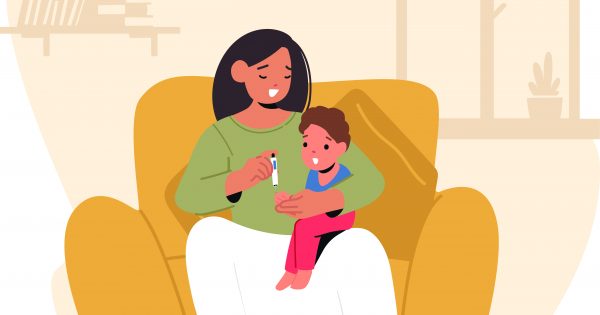The influenza A(H1N1) pandemic, which first broke out in mid-April 2009, had relatively quietened down for a period of time. However, the resurgence of the disease early this year could mean that the second wave is already in its infancy. Though the current situation is nowhere near as serious as the situation back in 2009, the public is advised to continue taking precautions and remain vigilant to prevent infection and complication from the disease.
Pneumococcus – Complicating Influenza A(H1N1) Recovery
Though most H1N1 cases have been mild, with many of those affected usually recovering, there have also been more severe cases with complications that can prove to be fatal. Statistics from the CDC show that the more severe cases of influenza are made worse by secondary bacterial infections, particularly by Streptococcus pneumoniae.
Bacterial surveillance by the Centers for Disease Control (CDC) have observed a greater than expected number of cases of invasive pneumococcal disease (IPD) that coincides with the increases in influenza-associated hospitalisations.
The most common complication observed in such cases is pneumonia, an infection of the lungs. In fact, it was noted that during each of the recent influenza pandemics worldwide, secondary bacterial pneumonia was a frequent cause of illness and death. This is because influenza predisposes individuals to developing pneumonia by weakening the lung’s defenses, allowing bacteria like Streptococcus pneumonia to infiltrate and infect lung tissues. Similarly, the disease can also infiltrate the blood and the fluids surrounding the brain, causing bacteraemia and meningitis.
Influenza and Children
Without medical help, it may be difficult to detect influenza in very young children as they may not complain of the common influenza symptoms like fever, sore throat and breathing difficulties. Thus, as parents, it is important to take note of various changes consistent with the onset of influenza in children. Bring your child to the doctor immediately should he exhibit any of these symptoms as he may have contracted the influenza A(H1N1) virus;
- Fever, cough and runny nose.
- Tiredness, lethargy, poor appetite, diarrhoea and/ or vomitting.
- Has severe trouble with breathing.
- Has bluish skin colour/lips.
- Has fits/seizures.
- Is unresponsive and difficult to wake up from sleep.
- Dehydrated (in infants, no wet diaper for 12 hours).
Some children, especially those younger than the age of 2, have a weak immune system or those with lung, heart, liver, blood, brain, muscle, bone or metabolic disorders, are at higher risk for developing severe forms of influenza and contracting a secondary bacterial infection.
Preventing Complications from Pneumococcal Disease
Pneumococcal disease is one of the leading causes of vaccine-preventable deaths and coupled with influenza A(H1N1), the disease may prove fatal.
Thus, to prevent such complications from developing the CDC recommends the public to obtain a yearly seasonal vaccine as the first defense against the common seasonal influenza. Vaccines to protect against the H1N1 influenza are now available and children aged between 6 months and 10 years are given the priority, as they are more vulnerable.
Additionally, pneumococcal vaccines are also recommended by the CDC to reduce illness and death resulting from secondary pneumococcal infections, especially among children below the age of five years. For children, the pneumococcal conjugate vaccine (PCV7) protects against 7 serotypes of pneumococcal strains while the newer Pneumococcal Non-Typeable Haemophilus influenzae Protein D Conjugate Vaccine (PHiD-CV) protects against 10 serotypes of pneumococcal strains.
Vaccinate Today
Although influenza, specifically H1N1, is not making the headlines these days, it still remains a very large part of humanity and as with most illnesses, young children are the most susceptible. Parents should play their role in ensuring their child receives the best and is well taken care of during the high-risk periods and through all other times as well. Vaccinate your child before it is too late. Pay close attention to pneumococcal vaccination as well as bacterial infections are one of the complications that arise from influenza A(H1N1).







Comments